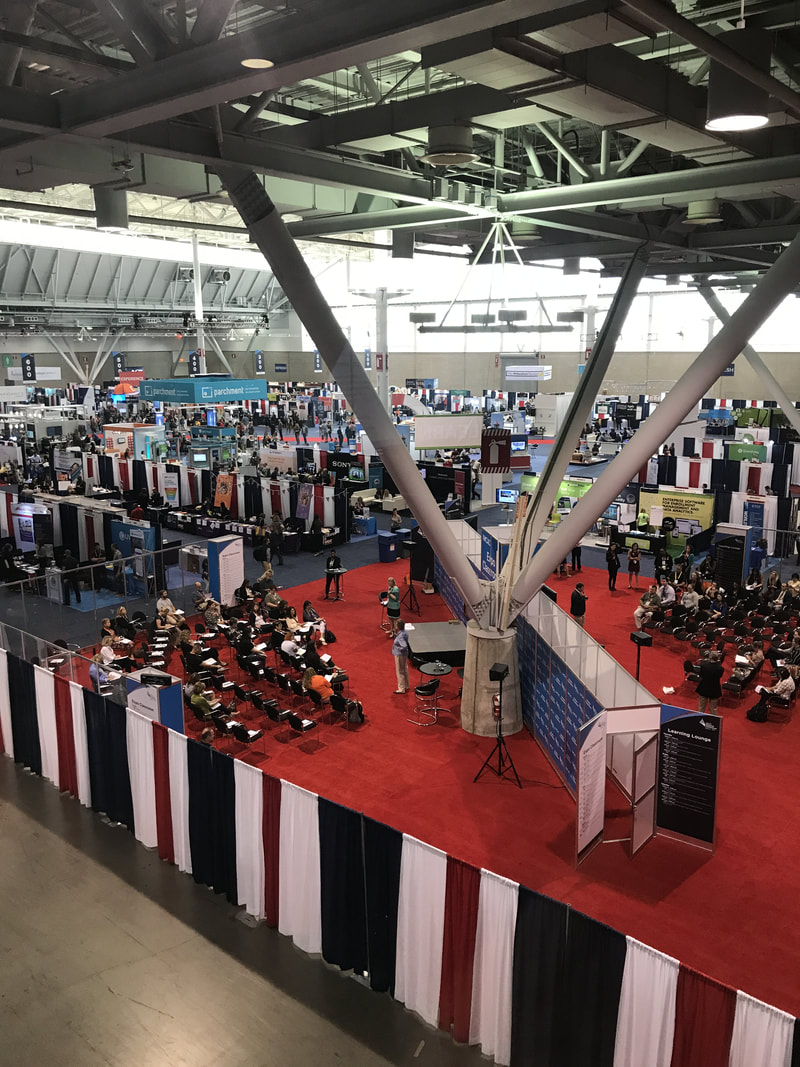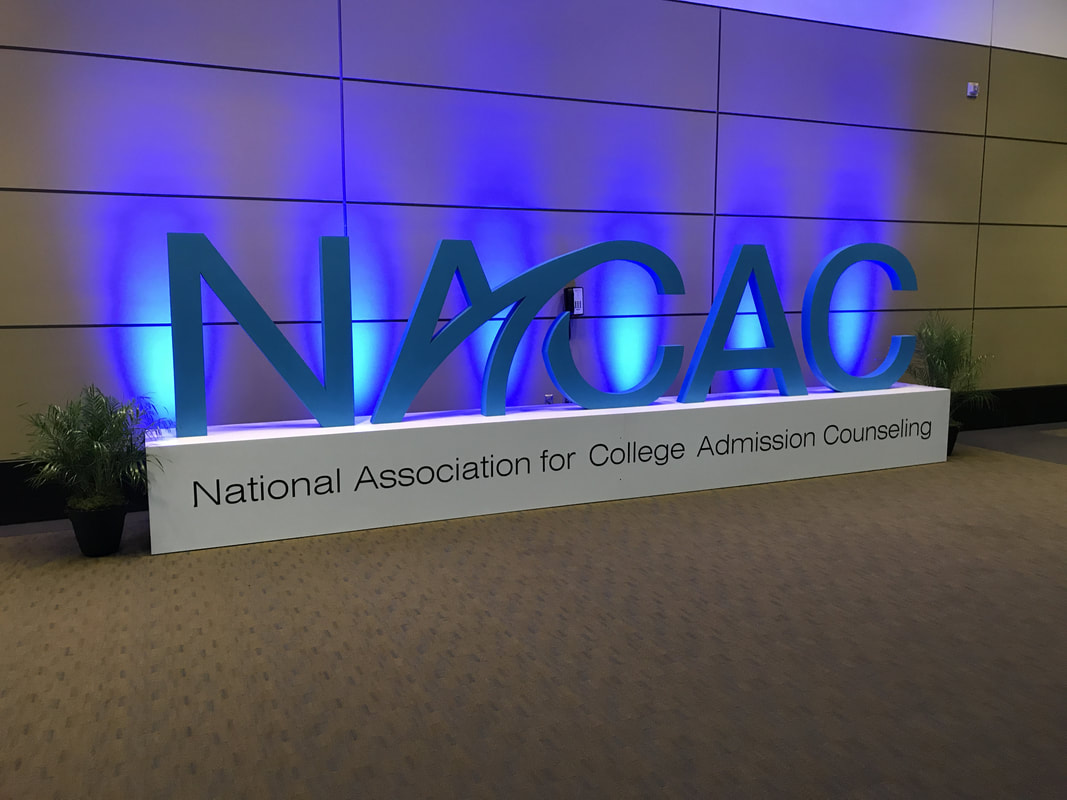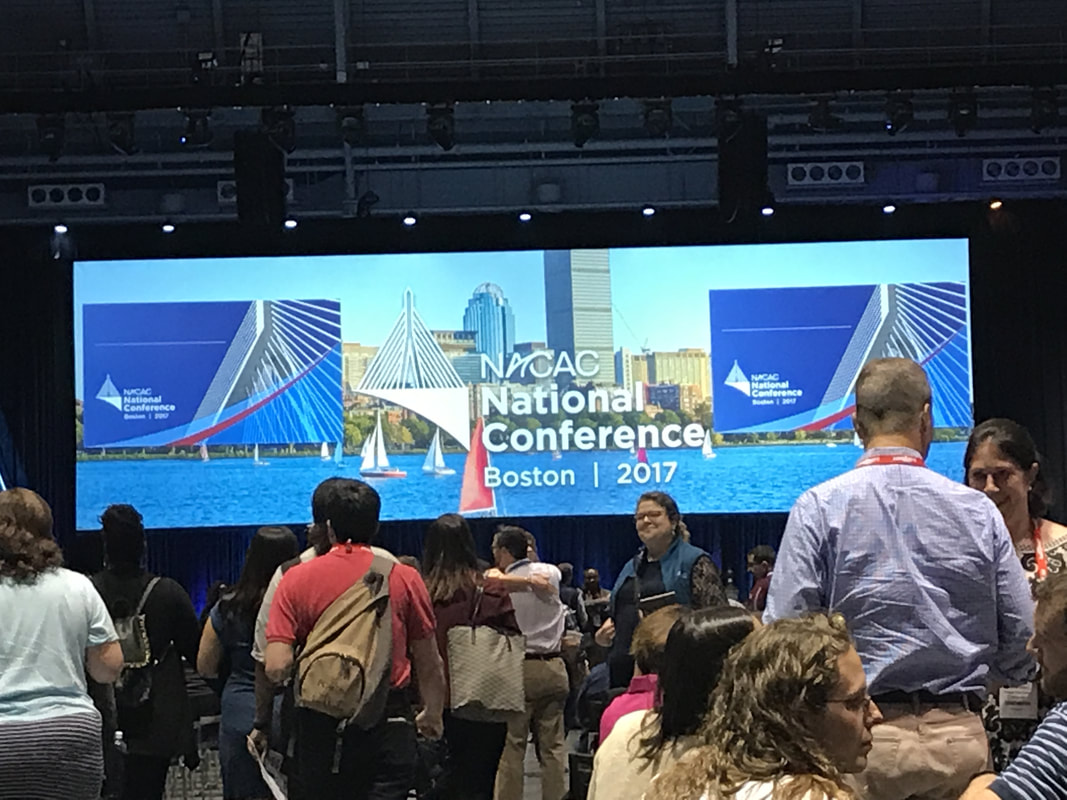|
The National Association for College Admission Counseling (NACAC) is a tremendous resource for everyone working in the college counseling field, and their annual conference provides much insight into current trends in college admission. This year's gathering in Boston was no exception! While it there was truly an *abundance* of all kinds of information available, her are my top 3 major take aways from the 2017 NACAC conference:
1 Comment
It all began when I tried to find a place to park.
This year’s annual conference for the National Association for College Admission Counseling (NACAC) was happening at the Boston Convention and Exposition Center (BCEC), and I had searched the web for days in advance, trying to figure out where I was supposed to leave my car while attending this event. I had known about NACAC since I worked in the Admission Office at Olin College in the early 2000s, but I had never attended one of their events before. Moreover, this was going to be my first professional conference as an independent college consultant, and I was both excited and nervous. Armed with my freshly-printed business cards, I woke up extra-early Thursday morning to make sure that I didn’t miss a minute of the day’s events. However, in order to participate fully in the conference, I first needed to find a place to park. Being more confused than ever after my web research attempts, I decided just to drive to the BCEC and to see what happens. To my surprise, there was ample street parking around the BCEC (probably because I was there so early!), so I just pulled into a spot, dropped some quarters into the meter, and made a mental note to move my car after the 2-hour limit expired. One challenge down. Next, I had to find my way into the BCEC. Sounds simple, right? One would think so, but I ended up walking up and down the street, finding myself blocked by jersey barriers, fences, and locked doors. The particularly cruel part was that I could see through the glass windows of the adjacent Westin hotel, and watched helplessly as people with NACAC name tags milled about the hallways with their papers and coffee cups in hand. After finally finding a door that opened, I stood at the bottom of an escalator somewhere in the Westin with no idea where to go. At that very moment, I saw someone I recognized - a former colleague from Olin! Emily “Pete” Petersell from the Admission Office was walking towards me, and offered a very friendly greeting! It turned out that she was heading to the Registration desk before the beginning of her morning meeting, and we agreed to find it together. After one flight of escalators, we bumped into another friendly face, Emily’s co-worker Susan Hartley Brisson. Susan and I had worked together on the Admission Committee several years ago, when I was a voting faculty member. We made lunch plans together, and Pete and I continued to Registration. Meeting those two wonderful women made my morning anxiety subside - in a *huge* sea of strangers (who all seemed to know each other!), I had found two allies who wished me well. The rest of my day was full of more confusion - I swear, I must have walked for miles in circles around the inside of the BCEC! - and more effort trying to figure out how things worked at this event. Everything was puzzling to me, from deciphering the different educational sessions and their locations to reading the floor map of the exhibition hall full of vendors. Nothing was easy, everything felt frustrating. And then it hit me: I was (re)living my first few weeks as an undergraduate! You may laugh, but the parallels are definitely there: I was entering a whole new world in a completely foreign environment to me, where I practically knew no one and had no idea how things worked. I was “the freshman” all over again, wandering around with a confused look on my face, trying to figure out where my assigned classrooms were located and how I was supposed to find something that was “on reserve” at the main library. Just like being a first year student, it was exciting, overwhelming, frustrating, exhilarating, and everything in between - all at once. So, why am I relating my “freshman” experience with you? Because being immersed into this intense, new physical and mental space reminded me of the importance of empathy when working with adolescents and young adults. For folks who have been out of the “student” role for a while, it’s far too easy to forget the stress involved in the transition from “high school senior” to “college first year.” High school seniors may be excited about the prospect of applying to all of these amazing colleges and universities, but they are also worried about whether or not they will fit in and find new friends, whether they’ll choose classes that they like, whether they will graduate with enormous debt, and about whether or not they will pick the best school for them to attend. Meanwhile, first year undergraduates all over the country are only now beginning to feel a little more comfortable in their own skin, after weeks of a fun, confusing, and stressful orientation in their brand new worlds (plus, the euphoria of that first year should begin to wear off approximately next week, once those first graded assignments are returned and reality hits - higher education is hard, work has to get done, and the party is over!). In short, change is tough, even when it’s a positive change, and it’s paramount for the adults in a student’s life to be supportive, encouraging, and understanding of this. It’s our job as teachers, counselors, and guides to remind our students that beginnings are always the hardest, no matter your age. And, just as I survived my latest “beginning” in the world of NACAC and had a very productive second day at the conference, so, too, will our high school seniors survive the college admission process and that transition to life in higher education. One might even figure out where to park next time one is in Boston! Welcome to A+ College Consulting's blog! I'm Maruta, your guide in all things related to the college admission process. I hope that you enjoy reading my thoughts, opinions, and advice on applying to colleges and universities, and that you find my ideas helpful.
Plan on checking back regularly for new posts on a variety of topics that I care about, such as tips on how to keep your stress levels down during the application process, why I think the corporatization of higher education is detrimental to students, new trends in college admission, and best practices when it comes to writing that all important college application essay. I'm excited to share my knowledge and experiences in college admissions and academia with you, and I encourage you to leave comments. Before I sign off for this entry, a quick teaser for the next blog post: this week, from September 14th-September 16th, Boston will be taken over by swarms of high school guidance counselors and college admission officers from all over the country to participate in this year's annual NACAC conference (NACAC stands for the National Association of College Admission Counselors, by the way). I'm thrilled to be attending, and I plan on posting about my experiences during this 3-day intense experience. In the meantime, if you'd like to learn more about NACAC and what they do, check out their website: www.nacacnet.org/ . |
AuthorMaruta Z. Vitols is an independent educational consultant in the metro-Boston area. When not helping students achieve their dreams, she enjoys hanging out with her dog, exploring new places with her husband, and doing yoga. Archives
April 2023
Categories |




 RSS Feed
RSS Feed